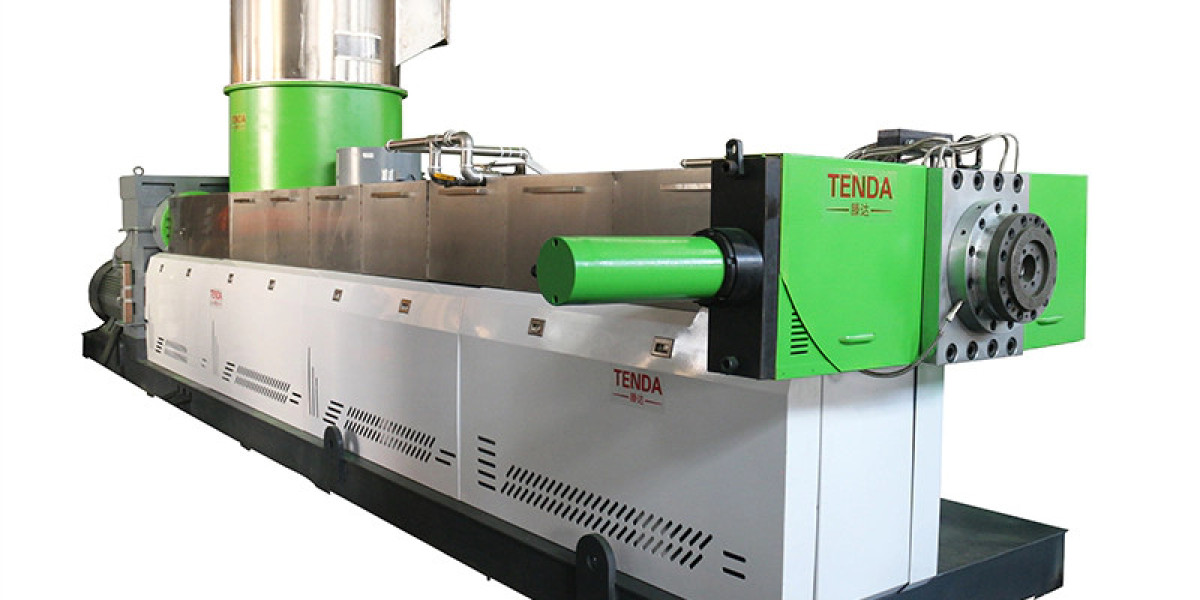masterbatch extruder are essential in the plastic manufacturing industry, used to blend color and additives into polymers. The two primary types of extruders are single screw and twin screw extruders. Each type has its unique advantages and disadvantages, making them suitable for different applications. This article will provide a comparative analysis of single screw and twin screw masterbatch extruders, focusing on their design, operation, efficiency, and applications.
Design Differences
The design of single screw and twin screw extruders is fundamentally different. A single screw extruder consists of a single helical screw that rotates within a cylindrical barrel. This design is simpler and generally less expensive to manufacture. In contrast, a twin screw extruder features two intermeshing screws that rotate in the same direction or opposite directions. This more complex design allows for better mixing and compounding of materials, making twin screw extruders more versatile.
Operational Mechanism
The operational mechanism of these extruders varies significantly. In a single screw extruder, the material is fed into the hopper and is pushed forward by the rotating screw. The material is then melted and mixed as it moves through the barrel. On the other hand, twin screw extruders utilize two screws that provide a more efficient mixing process. The intermeshing screws create a more intense shear force, allowing for better dispersion of additives and colorants in the polymer matrix.
Efficiency and Output
When comparing efficiency, twin screw extruders generally outperform single screw extruders. The enhanced mixing capabilities of twin screw designs lead to a more uniform distribution of additives, resulting in higher quality masterbatches. Additionally, twin screw extruders can process a wider range of materials, including those with higher viscosities. However, single screw extruders can achieve higher output rates for specific applications, making them suitable for high-volume production where uniformity is less critical.
Temperature Control
Temperature control is crucial in the extrusion process to ensure the quality of the final product. Twin screw extruders typically offer better temperature control due to their design, which allows for more precise heating and cooling. This capability is essential when processing heat-sensitive materials or when specific temperature profiles are required for different additives. In contrast, single screw extruders may struggle with temperature consistency, especially when processing materials with varying thermal properties.

Material Compatibility
Material compatibility is another critical factor in choosing between single screw and twin screw extruders. Twin screw extruders are more versatile and can handle a broader range of materials, including those that require specific processing conditions. They are particularly effective for processing filled and compounded materials. Single screw extruders, while effective for many applications, may not be suitable for more complex formulations that require extensive mixing and dispersion.
Cost Considerations
Cost is often a deciding factor when selecting an extruder type. Single screw extruders are generally less expensive to purchase and maintain. Their simpler design leads to lower initial investment costs, making them attractive for smaller operations or those with limited budgets. Conversely, twin screw extruders tend to have higher upfront costs due to their complex design and additional features. However, the enhanced performance and flexibility of twin screw extruders can justify the higher investment in many cases.
Applications in Industry
The applications of single screw and twin screw extruders vary significantly. Single screw extruders are commonly used in the production of standard plastic products, such as films, sheets, and pipes. They are ideal for applications where high output and lower costs are priorities. Twin screw extruders, however, are favored in applications requiring advanced mixing and compounding, such as the production of masterbatches, engineering plastics, and specialty compounds. Their ability to handle complex formulations makes them indispensable in many modern manufacturing processes.
Conclusion
In conclusion, both single screw and twin screw masterbatch extruders have their unique advantages and are suited for different applications. Single screw extruders offer simplicity and cost-effectiveness, making them ideal for high-volume production of standard products. On the other hand, twin screw extruders provide superior mixing capabilities and versatility, making them essential for producing high-quality masterbatches and complex formulations. The choice between the two types ultimately depends on the specific requirements of the application and the desired quality of the final product.








